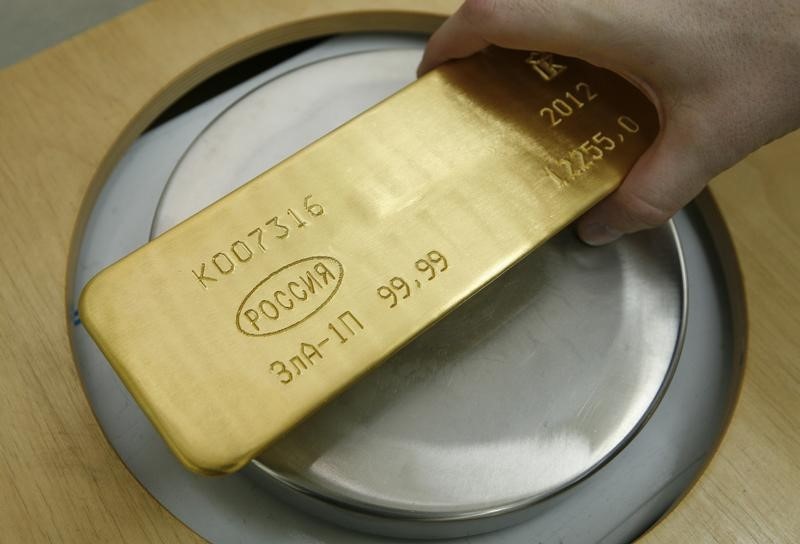By Geoffrey Smith
Investing.com -- Gold prices rose on Thursday as another 3 million Americans filed for jobless benefits, reviving concerns about the outlook for the U.S. economy.
“As more states start the re-opening process over the coming weeks we are likely to see steeper declines in initial claims, but the numbers are likely to remain horrible and well in excess of anything seen during the Global Financial Crisis,” said James Knightley, chief international economist with ING.
Prices were initially subdue in early trading in New York, but picked up after San Francisco Fed President Mary Daly talked up the possibility of further action from the Federal Reserve, noting that price pressures were still skewed to the downside.
By 11:50 AM ET (1550 GMT), gold futures for delivery on the Comex exchange were up 1.6% at $1,714.85 an ounce, while spot gold was up 1.3% at $1,707.12.
Silver futures were up 2.9% at a two-week high of 15.44 an ounce, while platinum futures were up 1.9% at $779.95.
The narrative of looming currency debasement remains intact but may curiously lead to some downward pressure on gold in the near term.
The Turkish lira fell to an all-time low against the dollar on Thursday, prompting speculation that the Central Bank of Turkey, which had bought more than 140 tons of gold since its mini-currency crisis in 2018, may be forced to sell some of its hoard to defend the currency. It may be easier to sell its gold rather than its officially-stated foreign exchange reserves, as much of these appear to have been pledged to commercial banks.
Reserve data from the Chinese central bank earlier showed no such pressure – its holdings remained unchanged in April.
Gold prices continue to be fundamentally supported by looser monetary policy. The central bank of Brazil cut its key rate by 75 basis points to a new record low of 3% on Wednesday, while the Bank of England said that its monetary policy council recognized the possible need for more quantitative easing, even though it made no change to its policy stance on Thursday. European Central Bank Vice President Luis de Guindos meanwhile told EU lawmakers that the ECB doesn’t intend to curtail its bond buying just because the German Constitutional Court doesn’t like it.
